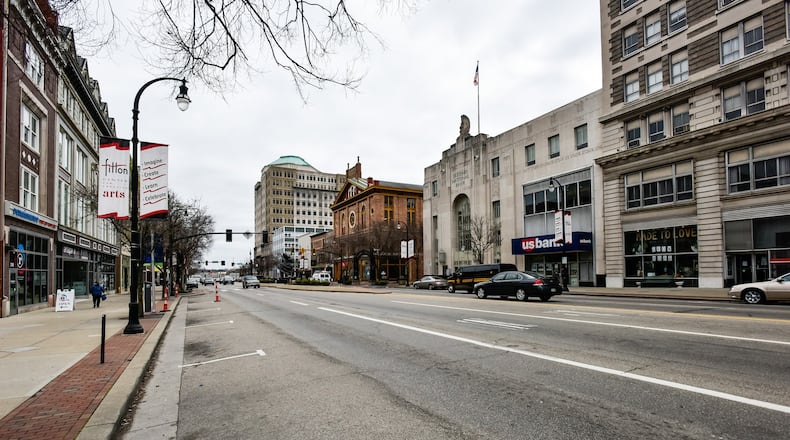Provisional ballots are used to record votes when a voter’s eligibility is in question and the voter would otherwise not be permitted to vote at a certain polling place. When someone votes provisionally, it is allowed to be cast and then election officials verify if the person was eligible to vote.
Often provisional ballots happen on Election Day, or during in-office early voting, when a voter’s eligibility is questioned or if someone recently changed addresses without updating their voter registration.
On Tuesday night, after results were announced, Jack Whalen, the leader of the citizen campaign for the levy, said, “Wow. I am absolutely shocked. With the virus and all the other stuff, I am shocked but obviously pleased.”
With the votes counted Tuesday night, the Issue 1 levy was ahead by 101 votes Tuesday, 50.82 percent to 49.18 percent: 3,123 to 3,022, according to the non-final, unofficial results.
RELATED: Many Ohio local governments facing street-repair problems Hamilton is hoping to tackle
By Wednesday afternoon, Whalen already calculated what the levy needs to win once the board of elections conducts its official run of the election on May 19.
The 10-year, 3.9-mill levy will generate $3.1 million per year and cost the owner of a $100,000 home $136.50 per year, or the owner of a $75,000 home $102.38.
“We have to win — I did the math — a little less than 42 percent, if every vote came in, the provisionals, all of them, to win by a couple of votes,” Whalen said.
“The shame of it all is we won’t know until May 19,” he said, noting that originally Election Day was scheduled for March 17, before it was postponed because of coronavirus concerns.
If the official levy results are within a half percent, then per state law the board must conduct an automatic recount at a later date.
Whalen credited the committee of a dozen that he said kept the faith and didn’t give up, despite obstacles.
If the levy is successful, “I think it’s a huge thing for Hamilton,” said Whalen, who noted the city will conduct meetings to gather neighborhood feedback about which streets should be repaired in their areas first. “Everybody agreed we needed to have roads fixed. I think this is major, to have this passed at this point in time, with what’s going on.”
“And now the proof of the pudding is to deliver,” he said. Even with the levy, the city will lack the funding to repair many of its streets, advocates have repeatedly noted.
Since the election was supposed to have happened on March 17, he said several thousand people requested absentee ballots. Each day, Whalen said his group got the list and mailed those people cards advocating for the levy.
Whalen said he wrote two letters to the levy committee, depending on which way the vote would have gone.
The campaign, Whalen had frequently noted, was one in which essentially everybody agreed on one thing: Hamilton’s streets are in bad shape.
MORE: Check out the area’s 2020 primary election results
Differences in opinion were on the solution: Many voters did not want to pay more money to repair them, believing the city had funds it could take from other parts of the city government to finance the repairs.
About the Author
